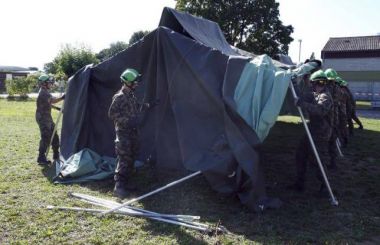Switzerland criticised for confiscating cash, valuables of migrants before allowing them to enter

Switzerland has come under fire over its law that mandates officials to confiscate belongings of asylum seekers upon their entry into the country.
The law is similar to those proposed in Denmark, where authorities are allowed to seize migrants' cash and other individual items worth more than 10,000 kroner. Danish MPs is expected to vote on the proposal later this month, according to reports.
The U.N. refugee agency (UNHCR) based in Geneva and human rights groups have condemned the Swiss law and a similar proposed legislation in Denmark, warning this sends a "worrisome'' signal that "could fuel fear and xenophobia, as millions of Syrian refugees continue to seek shelter," TIME reported.
The Swiss law allows officials to seize cash or valuables above $1,000. In 2015, more than 100 refugees were affected by the rule with about $200,000 being seized in total.
"Swiss law states that asylum seeking refugees who have money have to contribute to the costs that they cause while being here. And that's why we take their valuables away once they arrive in Switzerland,'' Government spokeswoman Lea Wertheimer said, BBC reported.
The Danish proposal, on the other hand, requires asylum seekers to hand over assets in excess of $1,000 to pay for their stay. Sentimental items such as wedding rings are not included in the plan.
The refugees may also receive their valuables back, but only if they make a request and leave within seven months of arriving, it said.
"[It is] a daylight robbery,'' said Stefan Frey from the Swiss Refugee Council, BBC reported. "This is unworthy. This has to change.''
A Syrian man also reportedly told Swiss television he had been forced to sell his house to pay people traffickers to help his family flee the conflict in their country, but the money left over was taken when he arrived in Switzerland.
"Seems that it is their right to take it away. They gave us a receipt. The others promised that the money would be returned, but until now this has not happened,'' said the Syrian man, BBC said.











